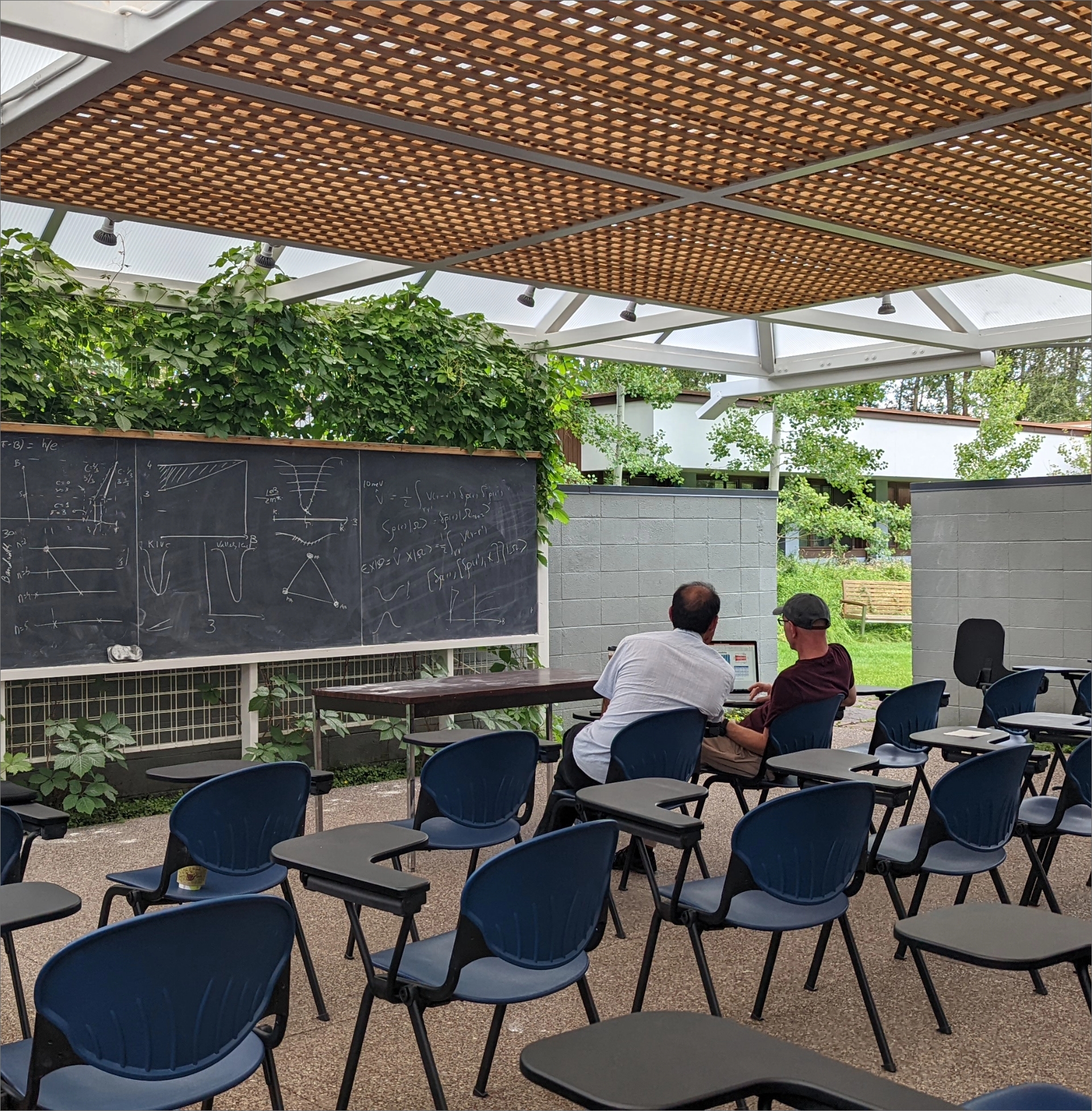
Summer Program
Physics of Biological Data Analysis
July 21–August 18, 2024
Organizers:
Marianne Bauer, Delft University of Technology
Anne-Florence Bitbol, École Polytechnique Fédérale de Lausanne
Ilya Nemenman, Emory University
Greg Stephens, Vrije Universiteit Amsterdam
The amount and quality of biological datasets available is fast increasing. This holds at the molecular and cellular scales (gene sequence and expression data), but also at larger ones (populations and communities of cells, behavior of one or multiple animals). Making sense of these extraordinarily rich datasets calls for new inference and interpretation methods, and ultimately new theory. Since microscopic theories of biology may not provide insight on larger scales, data-driven approaches play an integral role in biophysics, for example guiding us to discovering new physical laws.
Various analysis approaches inspired by statistical physics and by machine learning are currently being developed. They range from fitting models to model-free analysis, and include supervised and unsupervised approaches. Recent advances in machine learning offer powerful new methods. For instance, some deep neural networks capture very well the rich structure of biological sequence data. Physics-based concepts play important parts in these analysis approaches, including deep learning ones. In turn, these models provide insight on biophysical phenomena.
This workshop will bring together scientists modeling biological data, performing and analyzing data-rich experiments, and those who are interested in developing, using and understanding new data analysis methods, such as deep learning. We will compare approaches, discuss successes and failures in data analysis, and reflect on future directions.
Summer Workshops
The summer program, running for 16 weeks from late-May to mid-September, emphasizes exciting open problems at the cutting edge. Two or three concurrent workshops, each with a specific focus selected for timeliness and the potential for breakthroughs and of two to five weeks in length, establish the main themes of each week, with twelve or thirteen different workshops each summer, balanced across fields including particle physics, string theory, astrophysics and hard and soft condensed matter physics, as well as emerging areas including biological physics, ultra-cold atom physics, quantum information, and physical mathematics. Additional researchers participate in small working groups or as individual researchers. This framework is designed to maximize informal interactions and free discussion within each area and to promote cross-fertilization between different areas via the common language of theoretical physics. Participation in the summer program of the Aspen Center for Physics is by application and subsequent invitation only. View past workshops.
